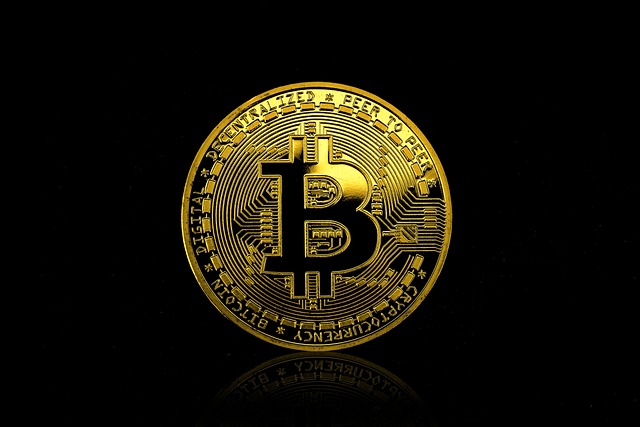Decentralized Finance Companies vs. Traditional Firms
Decentralized Finance Companies vs. Traditional Firms

Understanding the Evolution of Finance: Exploring the New Frontier
Decentralization is the keyword that defines the new frontier in the world of finance. As technology continues to advance at an unprecedented pace, traditional financial institutions are facing new challenges and opportunities. Decentralized finance companies are emerging as key players in this rapidly evolving landscape, revolutionizing the way we think about and interact with money.
Unlike traditional firms, decentralized finance companies operate on blockchain technology, which allows for the creation and execution of financial transactions without the need for intermediaries. This means that individuals can transact directly with each other, cutting out the middlemen and reducing costs. By leveraging smart contracts and decentralized applications, these companies are able to offer a wide range of financial services, such as lending, borrowing, investing, and trading, all within a secure and transparent framework.

Embracing Innovation: How Decentralized Finance Companies are Revolutionizing the Industry
In today’s fast-paced digital age, the finance industry is undergoing a profound transformation, thanks to the emergence of decentralized finance companies. These innovative companies are revolutionizing the industry by leveraging cutting-edge technology and introducing entirely new ways of conducting financial transactions. With their decentralized nature, these companies are challenging traditional financial institutions and disrupting the status quo.
One of the key ways in which decentralized finance companies are revolutionizing the industry is by offering greater accessibility. Unlike their traditional counterparts, decentralized finance companies are not bound by geographical constraints or bureaucratic hurdles. They embrace inclusivity, enabling individuals from all walks of life, regardless of their background or location, to participate in financial activities. Through their decentralized platforms, anyone with internet access can engage in various financial services, such as lending, borrowing, or investing. This newfound accessibility is empowering individuals who were previously excluded from traditional financial systems, opening up a world of opportunities and leveling the playing field.
Traditional Firms: The Status Quo of Finance
Traditional firms have long been the backbone of the finance industry, representing the status quo that has governed financial transactions for decades. These firms are characterized by centralized systems and hierarchical structures, where financial activities are conducted through intermediaries such as banks and financial institutions. This centralized approach provides a sense of security and stability for customers, as they rely on well-established institutions to manage their funds and facilitate transactions.
One of the key advantages of traditional firms is their extensive regulatory framework, which ensures compliance with industry standards and protects consumers’ financial interests. This framework imposes strict rules and guidelines on financial institutions, safeguarding against fraud, money laundering, and other illicit activities. By adhering to these regulations, traditional firms strive to maintain a secure environment where customers can trust in the integrity of their financial transactions.
However, the traditional finance industry is not without its limitations. The intermediaries involved in these processes often introduce delays and additional costs, which can hinder the speed and efficiency of transactions. Customers are also limited in terms of accessibility, as traditional firms sometimes require high minimum investment amounts or restrict services to certain individuals or businesses. These barriers can exclude a significant portion of the population from participating in the traditional financial system, creating a sense of exclusion and inequality.
Breaking Down the Differences: Key Characteristics of Decentralized Finance Companies
Decentralized finance companies, also known as DeFi, have emerged as a disruptive force in the financial industry, challenging traditional financial systems. One key characteristic of these companies is their ability to operate on a decentralized network, such as blockchain. Unlike traditional finance companies that rely on intermediaries like banks, DeFi companies use smart contracts and digital currencies to facilitate transactions directly between participants. This eliminates the need for middlemen, reducing costs and increasing efficiency.
Another notable characteristic of DeFi companies is their focus on democratizing access to financial services. Through decentralized platforms, individuals from all corners of the globe can participate in financial activities without relying on traditional institutions. This inclusivity opens up opportunities for unbanked individuals to access loans, earn interest on their savings, and engage in other financial activities that were previously out of reach. Additionally, many DeFi projects are built on open-source protocols, allowing anyone to contribute, audit, or build upon the existing infrastructure, fostering a collaborative and innovative ecosystem.
In summary, decentralized finance companies possess distinct characteristics that set them apart from their traditional counterparts. These include operating on a decentralized network, eliminating intermediaries, promoting inclusivity, and encouraging open collaboration. As the DeFi industry continues to grow and evolve, it is essential to understand these key characteristics in order to grasp the full extent of its potential impact on the financial landscape.
The Power of Trust: Examining Security Measures in Decentralized Finance
Decentralized finance companies have gained increasing popularity in recent years, offering a range of financial services that bypass traditional intermediaries.

One of the key security features of decentralized finance is the use of blockchain technology. Unlike traditional centralized systems, where data is stored on a single server, blockchain operates on a distributed ledger. This means that transactions are recorded and verified across multiple nodes, making it extremely difficult for any single party to tamper with the data. Additionally, the use of smart contracts adds an extra layer of trust by automating and executing transactions once predefined conditions are met. These features contribute to the overall security and transparency of decentralized financial platforms, instilling confidence in users and helping to overcome any doubts they may have.
Regulatory Landscape: Navigating Compliance Challenges for Decentralized Finance Companies
Navigating compliance challenges is a crucial aspect for decentralized finance companies operating in today’s regulatory landscape. As these companies aim to disrupt traditional financial systems, they often face unique legal and compliance hurdles that can impact their operations. One key challenge is the lack of clear guidelines and regulations specifically tailored to decentralized finance. Unlike traditional financial institutions that operate within well-established frameworks, decentralized finance operates on blockchain technology, which may not align with existing legal frameworks. This creates ambiguity and uncertainty for decentralized finance companies as they strive to ensure compliance with applicable laws while pushing the boundaries of innovation.
Moreover, another compliance challenge for decentralized finance companies lies in the international nature of their operations. As decentralized finance transcends geographical boundaries, it becomes subject to various jurisdictions, each with its own set of regulations.

To thrive in this ever-evolving regulatory landscape, decentralized finance companies must actively engage with regulators and policymakers to establish a conducive environment for their innovative solutions. Collaboration between regulators and decentralized finance companies can lead to the development of appropriate guidelines that balance innovation and consumer protection. By addressing compliance challenges head-on, decentralized finance companies can continue to pave the way for the future of finance while maintaining integrity and trust within the industry.
Accessible Finance: Analyzing the Inclusivity of Traditional Firms vs. Decentralized Finance Companies
Traditional financial firms have long been criticized for their exclusivity, often leaving out individuals who cannot meet certain criteria or afford high fees. Access to services such as loans, investments, and even basic banking products has traditionally been limited to a select few. On the other hand, decentralized finance companies are striving to break down these barriers and make finance more accessible to all.
Decentralized finance, or DeFi, is built on blockchain technology, which allows for increased transparency and removes the need for intermediaries in transactions. This technology brings with it the potential to open up financial services to a wider audience, including those who are currently excluded from the traditional financial system. Through DeFi platforms, individuals can access various financial services without the need for extensive documentation or credit histories. This inclusivity holds the promise of empowering individuals who have been overlooked or underserved by traditional firms, ultimately allowing for greater financial inclusion and economic opportunities for all.
• Traditional financial firms have often been criticized for their exclusivity and limited access to services.
• Decentralized finance companies aim to break down these barriers and make finance more accessible.
• DeFi is built on blockchain technology, which increases transparency and eliminates intermediaries in transactions.
• This technology has the potential to open up financial services to a wider audience, including those currently excluded from the traditional system.
• Through DeFi platforms, individuals can access various financial services without extensive documentation or credit histories.
• The inclusivity of DeFi holds the promise of empowering overlooked or underserved individuals.
• Greater financial inclusion through DeFi can lead to increased economic opportunities for all.
Speed and Efficiency: Comparing Transaction Processes in Traditional Firms and Decentralized Finance
In the world of finance, speed and efficiency are paramount when it comes to transaction processes. Traditional firms have long relied on centralized systems and intermediaries to facilitate transactions. These intermediaries, such as banks and clearinghouses, play a vital role in verifying and recording transactions. However, this reliance on intermediaries can introduce delays and additional costs into the process. Transactions often require multiple parties to review and approve them, leading to a slower and less efficient process overall.
On the other hand, decentralized finance (DeFi) companies are revolutionizing the industry by adopting blockchain technology. Unlike traditional firms, DeFi companies leverage smart contracts on a decentralized network to automate and streamline transactions. This eliminates the need for intermediaries, resulting in faster and more cost-effective transaction processes. Because DeFi platforms operate on a peer-to-peer basis, transactions can be executed in near real-time, offering a significant advantage over the traditional financial system. This speed and efficiency can provide individuals and businesses with greater financial flexibility and access to markets that were previously inaccessible.
The Role of Intermediaries: Disintermediation in Decentralized Finance
Decentralized finance (DeFi) has emerged as a disruptive force in the financial industry, challenging the traditional role of intermediaries. Throughout history, intermediaries have played a crucial role in facilitating financial transactions, providing trust and reliability to both individuals and institutions. However, the rise of blockchain technology and smart contracts has paved the way for disintermediation, enabling direct peer-to-peer transactions without the need for intermediaries.
In the world of DeFi, intermediaries such as banks, brokers, and clearinghouses are being bypassed, as trust is established through transparent and immutable blockchain records. This disintermediation offers several advantages, including increased efficiency, reduced costs, and enhanced accessibility. Without intermediaries, transactions can occur in real-time, removing the need for cumbersome processes and reducing the potential for errors or delays. Furthermore, with DeFi platforms accessible globally, individuals who were previously excluded from traditional financial systems can now participate in a range of financial activities, such as lending, borrowing, and investing, without the reliance on intermediaries. As a result, DeFi has the potential to democratize finance and provide greater financial inclusion for individuals around the world.
Exploring Future Prospects: Potential Impact of Decentralized Finance Companies on Traditional Firms
While decentralized finance companies are still in their early stages, they possess the potential to revolutionize the traditional finance industry. The impact of these innovative firms on traditional finance companies cannot be ignored. With their ability to provide faster, more efficient, and inclusive financial services, decentralized finance companies are poised to disrupt the status quo.
One potential impact is the reduction of intermediaries in financial transactions. Traditional firms rely on intermediaries such as banks or brokers to facilitate transactions. Decentralized finance companies, on the other hand, use smart contracts and blockchain technology to enable peer-to-peer transactions, eliminating the need for intermediaries. This disintermediation can lead to cost savings for consumers and businesses, as well as increased transparency and security in financial transactions. Additionally, decentralized finance companies have the potential to democratize access to financial services, making them more accessible to underserved populations. This could potentially shift the balance of power in the industry and level the playing field for individuals and smaller businesses.
In conclusion, exploring the future prospects and potential impact of decentralized finance companies on traditional firms reveals a promising outlook for the industry. With their innovative solutions and ability to address longstanding challenges, decentralized finance companies are poised to reshape the landscape of finance. As these firms continue to evolve and gain traction, traditional finance companies will need to adapt and embrace innovation to stay relevant in the changing landscape.
What is decentralized finance?
Decentralized finance, also known as DeFi, refers to the use of blockchain technology and cryptocurrencies to create financial applications that operate without the need for intermediaries like banks or traditional financial institutions.
How are decentralized finance companies revolutionizing the industry?
Decentralized finance companies are introducing innovative solutions that enable individuals to have more control over their finances. They are providing opportunities for financial services such as lending, borrowing, and trading to be more accessible, efficient, and inclusive.
What are the key characteristics of decentralized finance companies?
Decentralized finance companies are characterized by their use of blockchain technology, which ensures transparency, immutability, and security. They also operate on a peer-to-peer basis, eliminating the need for intermediaries.
Are decentralized finance companies more secure than traditional firms?
Yes, decentralized finance companies leverage blockchain technology, which provides a high level of security. The use of cryptography and distributed ledger technology ensures that transactions and data are protected from unauthorized access or tampering.
How do decentralized finance companies navigate regulatory challenges?
The regulatory landscape for decentralized finance is still evolving. Companies in this space are working closely with regulators to ensure compliance with existing laws and regulations. However, the decentralized nature of these companies makes it challenging to fit within traditional regulatory frameworks.
Do decentralized finance companies offer more financial inclusivity compared to traditional firms?
Yes, decentralized finance companies are striving to make financial services more accessible to a wider range of individuals. They are removing barriers such as geographical restrictions and minimum investment requirements, allowing anyone with an internet connection to participate.
Are transactions faster and more efficient with decentralized finance companies?
Yes, decentralized finance companies leverage smart contracts and blockchain technology, enabling transactions to be executed quickly and efficiently. This eliminates the need for intermediaries and reduces the time and costs associated with traditional financial transactions.
What is disintermediation in decentralized finance?
Disintermediation in decentralized finance refers to the removal of intermediaries like banks or brokers from the financial process. With the use of blockchain technology, individuals can interact directly with each other, reducing the reliance on third-party intermediaries.
How will decentralized finance companies impact traditional firms?
Decentralized finance companies have the potential to disrupt traditional firms by offering more efficient, inclusive, and accessible financial services. Traditional firms may need to adapt their business models to stay competitive in this evolving landscape.
Todays Featured Product:
Buy, exchange and grow your crypto securely with a Ledger hardware wallet, combined with the Ledger Live app. It’s never been easier to keep your crypto safe and accessible. Buy direct from Ledger.com and get todays Special Offers Here.




